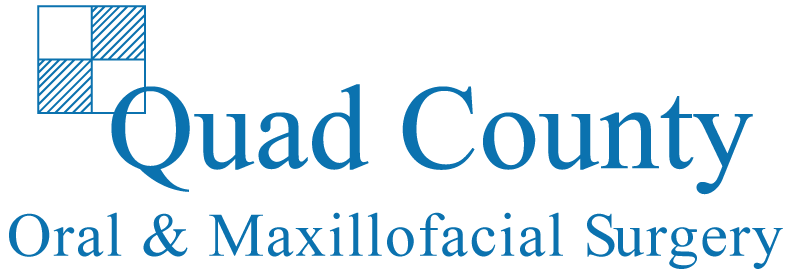TMJ Services
Board-Certified | Over 50 Years' Combined Experience | State-of-the-Art Equipment
Board-CertifiedOver 50 Years' Combined ExperienceState-of-the-Art Equipment
We Can Effectively Diagnose and Treat TMJ
The TMJ is a ball-and-socket joint located where the upper and lower jaws meet. You have one joint on each side of your mouth. These joints are part of a large group of muscles, ligaments, and bones that work together as a system.
When Your Jaw System is Working Properly
When the system is healthy, you can talk, chew, and even yawn in comfort. Muscles contract and relax to open and close the joint. The disk absorbs pressure in the joint. It also allows the jaws to open and close smoothly. Ligaments connect the jawbones to the skull. They also support the joint.
Using Medications
Your doctor at Quad County Oral & Maxillofacial Surgery may suggest medication to treat TMJ. For your safety, tell your doctor if you are taking any prescription or over-the-counter medications. Also, mention any herbs or supplements you are using. Then, ask about your new medication. What are its risks or side effects? How should it be taken?
Types of Medications
Some medications used to treat TMJ are by prescription only. Others are available over-the-counter. The medication type and dosage will depend on the problem you have. Common medications used to treat TMJ are described below.
- Anti-inflammatories and analgesics: These medications are used to treat pain, inflammation, osteoarthritis, and rheumatoid arthritis. Anti-inflammatories reduce swelling, heat, redness, and pain. They also help restore function. Analgesics reduce pain. Nonsteroidal anti-inflammatories (NSAIDs) relieve inflammation as well as pain.
- Antidepressants: These medications can be used to reduce pain or bruxism. At higher dosages, these medications are used to treat depression. Given at low dosages, antidepressants help relieve TMJ symptoms. They can reduce muscle pain. They also raise the level of serotonin, a body chemical that improves sleep. This, in turn, can decrease bruxism during the night.
- Muscle relaxants: These medications are often used to treat myofascial pain. Muscle relaxants help ease muscle tension. This reduces pressure on the TMJ from tight jaw muscles.

Share On: